As Brazil’s first-ever Golden Globe Best Actress winner Fernanda Torres puts it, “This is such an amazing year for female performances.”
For an industry where women make up the bulk of the audience yet hold the reins far less frequently, the 2025 Golden Globe Awards felt like a much-needed recalibration. Women claimed space, shattered ceilings, and turned what is often a celebration of individual success into a collective moment of awakening.
RELATED: MEGA’s Best Dressed List at the 82nd Golden Globes Delivers Old Hollywood Glamour
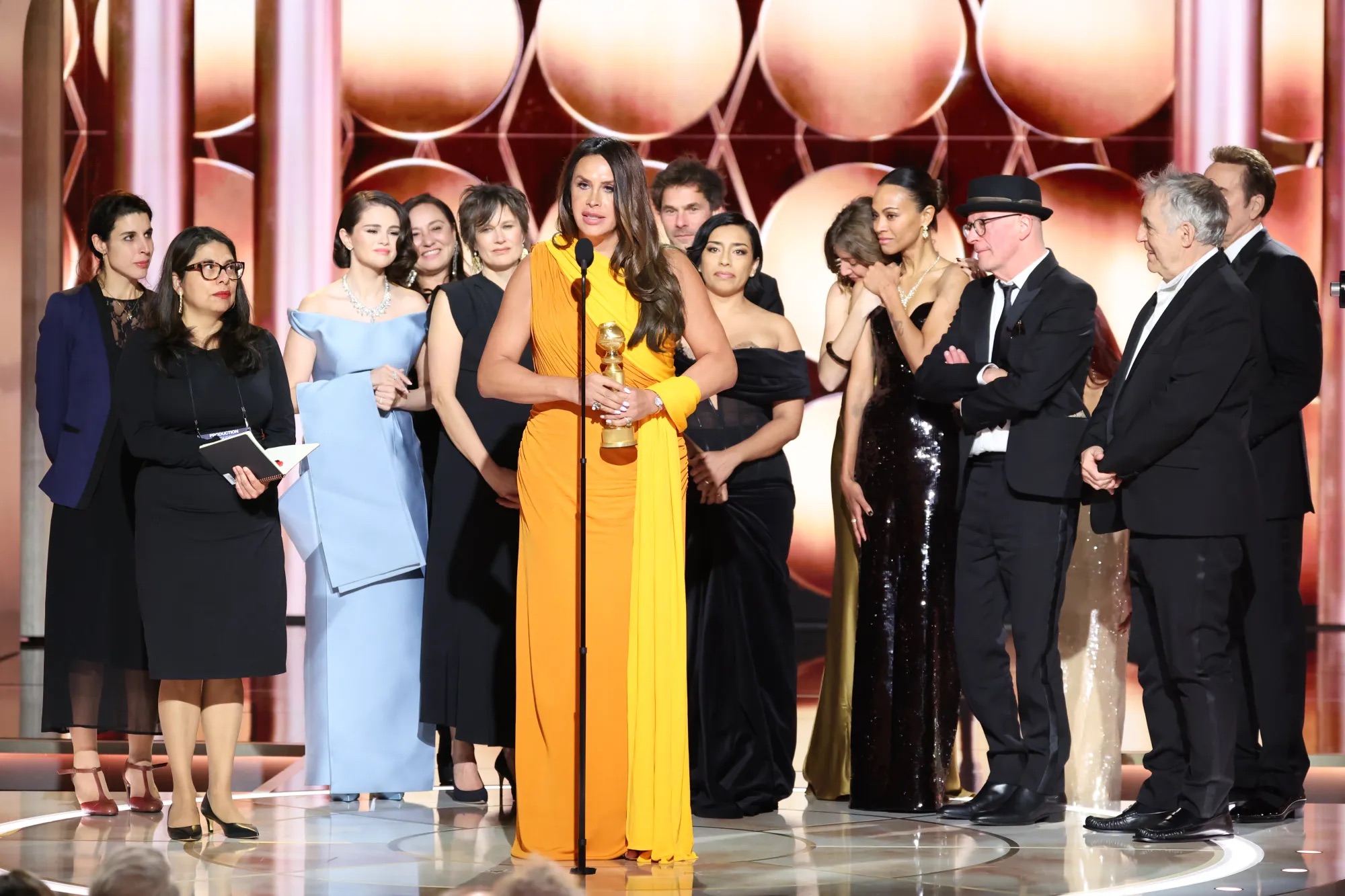
The evening began with Nikki Glaser, the first solo female host in the show’s history, setting the right tone. Witty and fearless, she steered the ceremony away from last year’s widely criticized hosting debacle, delivering sharp jabs and sly truths about Hollywood’s long-standing gender biases. “It could be a woman,” she joked about potential future scandals immortalized in crowd shots, “but it won’t be. It never is. Kind of like Best Director.” A laugh, followed by a wince—a true encapsulation of how far the industry still has to go, even on a night of progress.

The Substance of Success
Demi Moore’s win for The Substance was a standout moment. After 45 years in the industry, the actress finally snagged her first Golden Globe, winning Best Actress in a Motion Picture – Musical or Comedy. Her role in Coralie Fargeat’s feminist body horror film about ageism and youth struck a nerve, but it was Moore’s acceptance speech that truly hit home. Reflecting on her career, Moore revealed how a producer once dismissed her as a “popcorn actress”—a term suggesting mass appeal without depth.
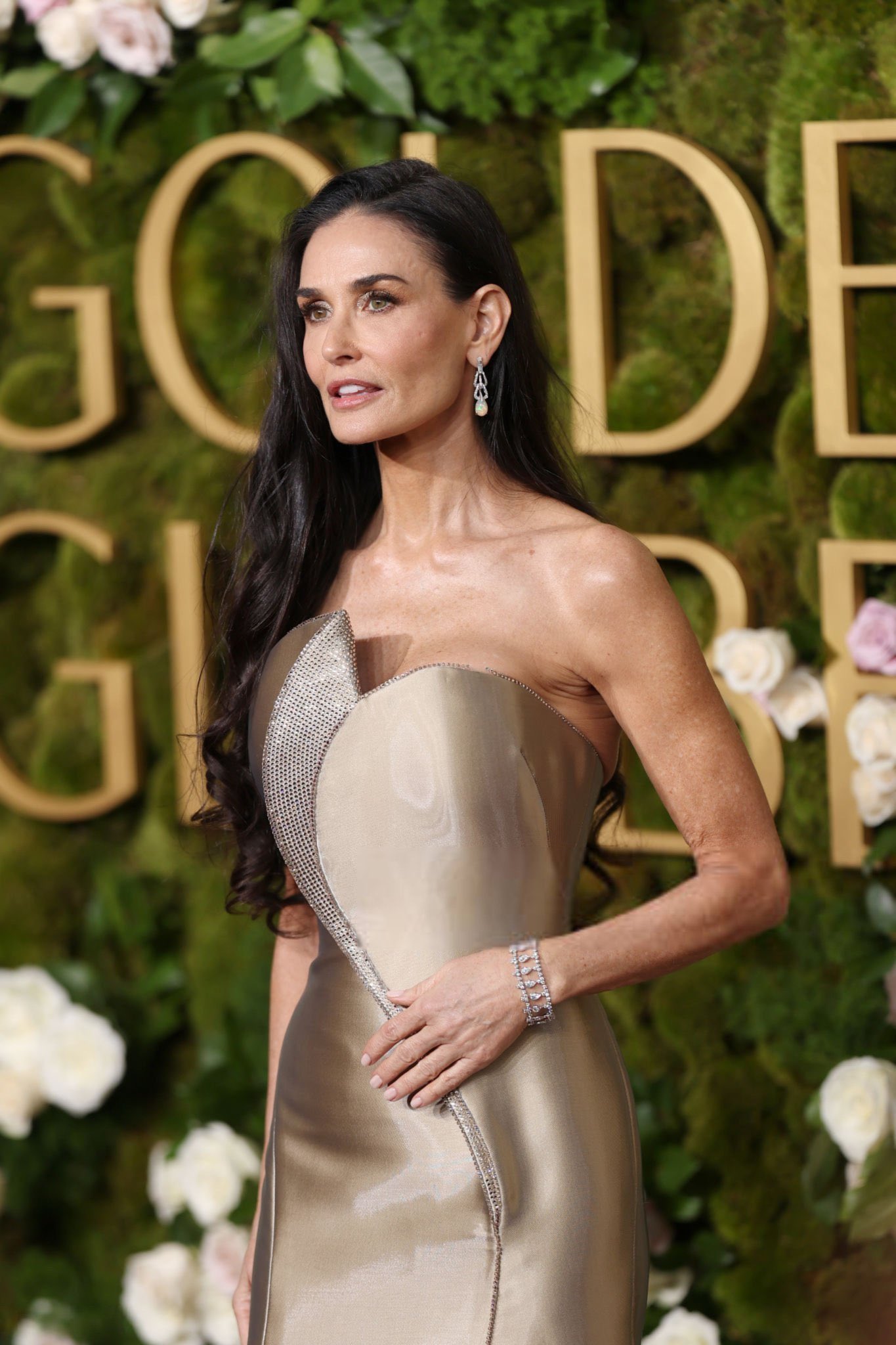
“I believed that,” she admitted. “It corroded me over time to the point where I thought maybe I was done.” Yet movement is life, and here she stands, shining like gold. At 62, Moore’s triumph felt like a rebuke to an industry that sidelines women past a certain age.
Bridging Legacies
History was made when Fernanda Torres became the first Brazilian actress to win Best Actress in a Drama for I’m Still Here, a biographical film about Eunice Paiva, an activist who fought for justice during Brazil’s military dictatorship. Directed by Walter Salles, the film brought Torres emotional weight for a different reason. Nearly 25 years ago, her mother, Fernanda Montenegro, was nominated in the same category, creating a poignant link between two generations of powerhouse performances. In her speech, Torres dedicated the award to her mother.
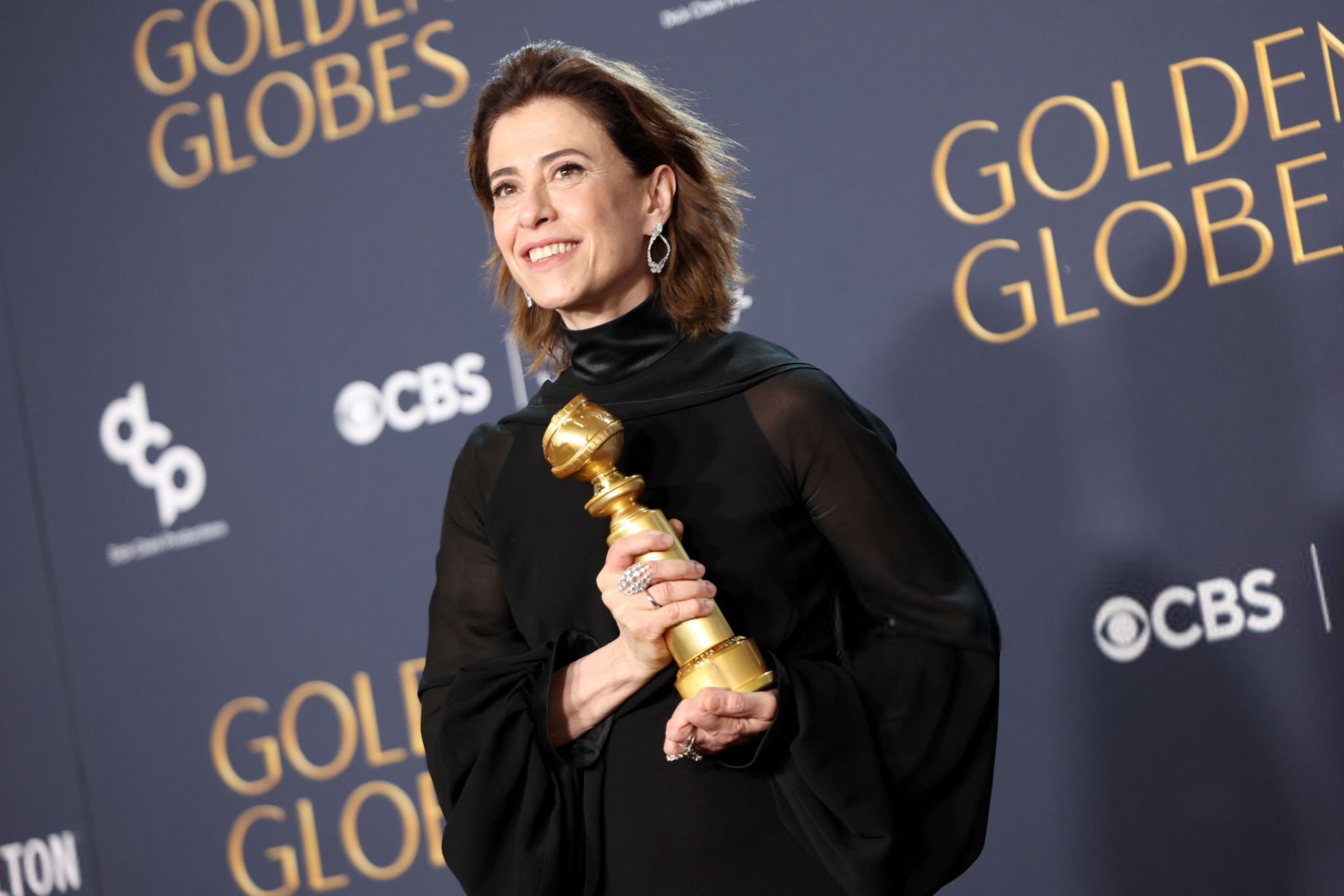
Anna Sawai’s win for Shogun was equally significant. She became the second actress of Asian descent to win Best Actress in a Television Series – Drama, 44 years after Yoko Shimada won the same award for the same role. This poetic parallel highlighted how representation can create ripples across generations, ensuring that progress is both celebrated and continued.
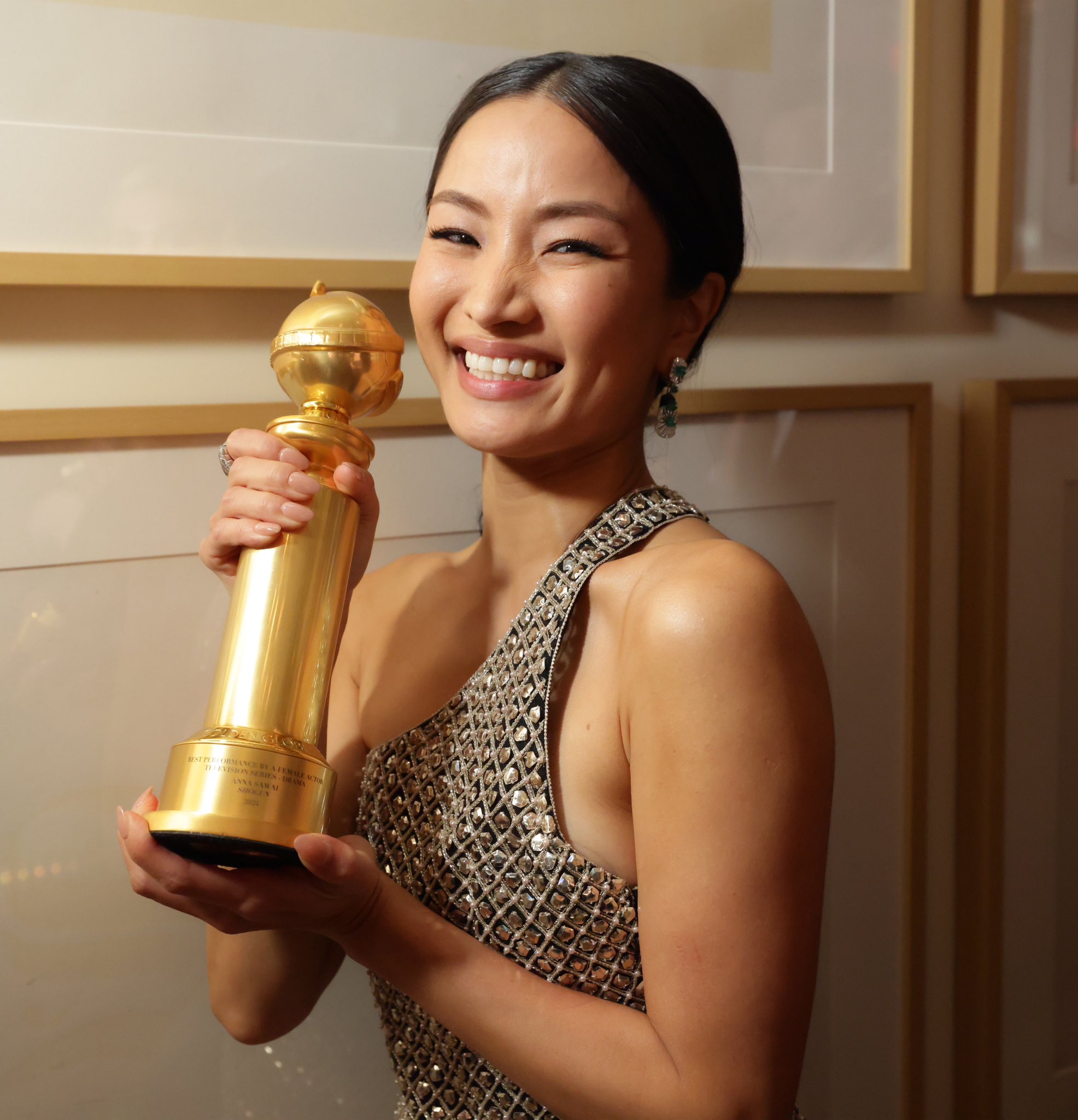
Beyond the Blockbusters
The Golden Globes continued to embrace popular cinema with the Cinematic and Box Office Achievement Award, a category introduced to honor films that look to critical acclaim with widespread audience support. This year, the honor went to Wicked, which broke records as the highest-grossing musical film adaptation of all time. The category debuted in 2024, with its first award going to Barbie, cementing the award ceremony’s commitment to recognizing cultural phenomena.
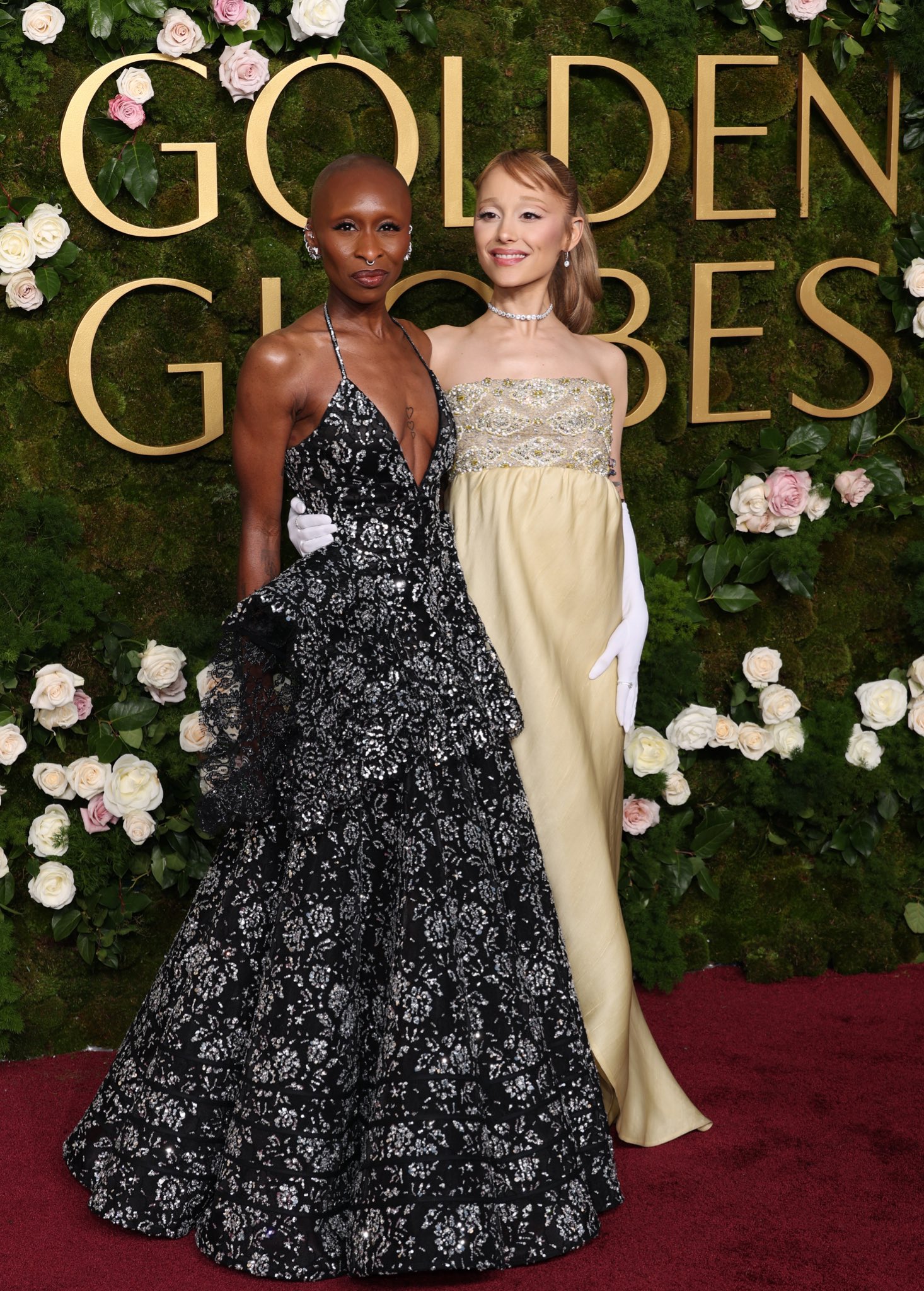
Zoe Saldaña, long celebrated as the highest-grossing actress in Hollywood thanks to blockbuster franchises like Avatar and the Marvel Cinematic Universe, finally took home her first Golden Globe for Emilia Pérez. In a touching speech, Saldaña praised her fellow nominees, saying, “I know it’s a competition, but all I have witnessed is us showing up for each other and celebrating each other, and it’s just so beautiful.”
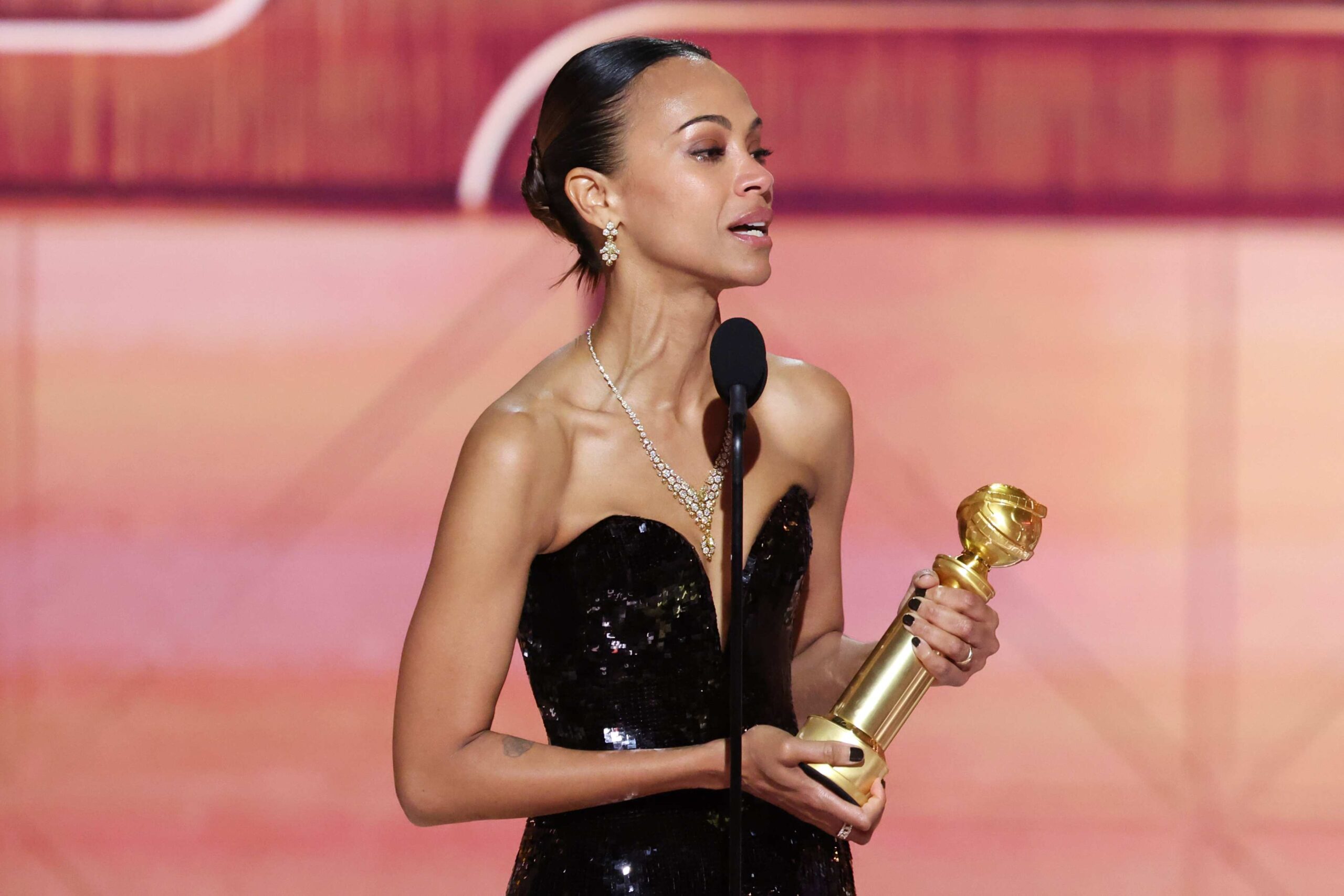
Ali Wong also took the stage for her third Golden Globe, this time for her Netflix special Ali Wong: Single Lady. At the 2024 Golden Globes, the actress and comedian became the first Asian American to take home a win for Best Actress in a Limited Series for her role in Beef. Wong’s comedy is fearless, dissecting topics like motherhood, divorce, and Asian-American identity with razor-sharp humor. Her win was a reminder that comedy, often overlooked in award circuits, is just as powerful a platform for storytelling.
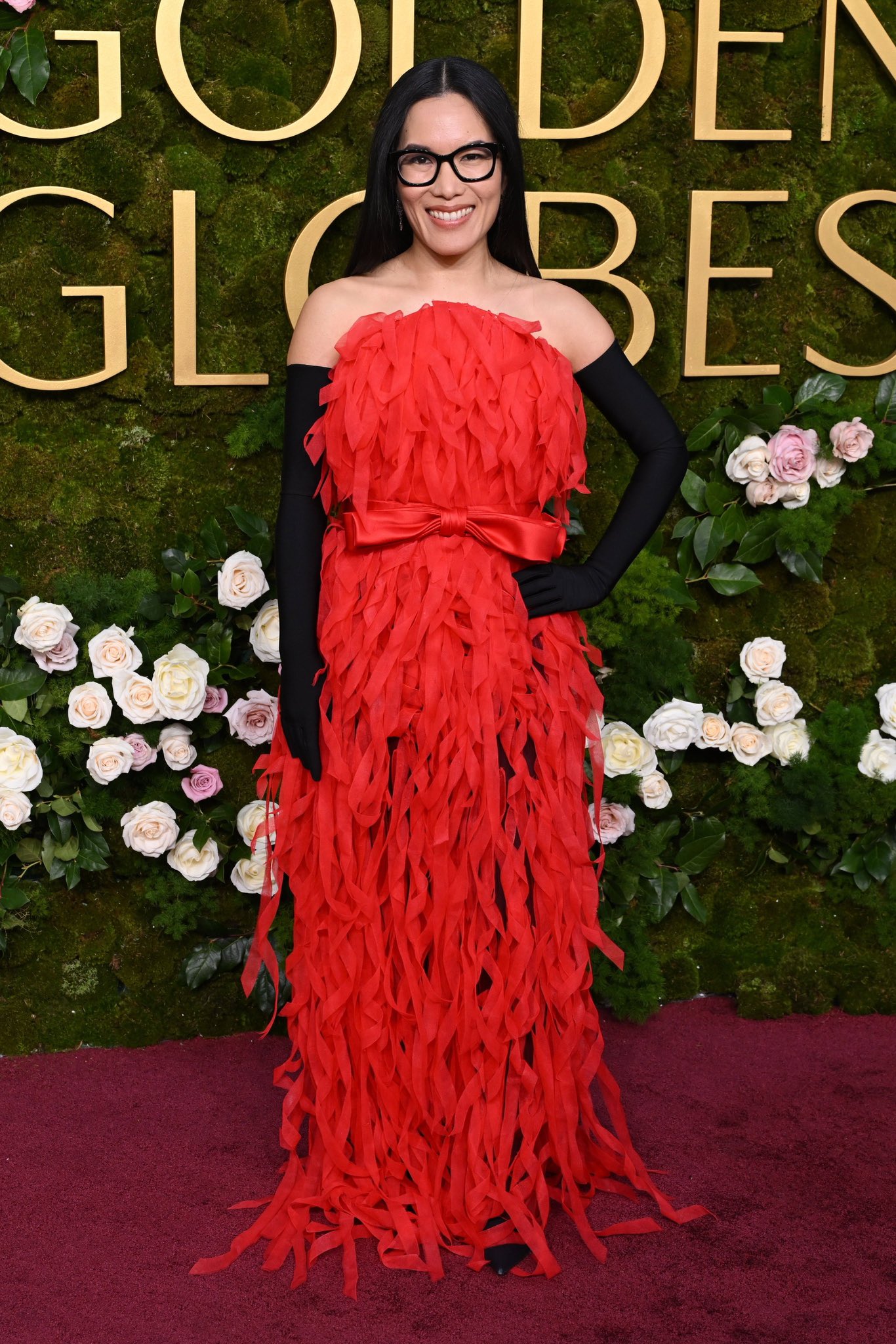
Honoring a Titan
The Cecil B. DeMille Award, a lifetime achievement honor, went to Viola Davis. Davis, one of the few performers to achieve EGOT status (Emmy, Grammy, Oscar, and Tony), highlights the importance of storytelling in unearthing truths and amplifying voices often silenced.
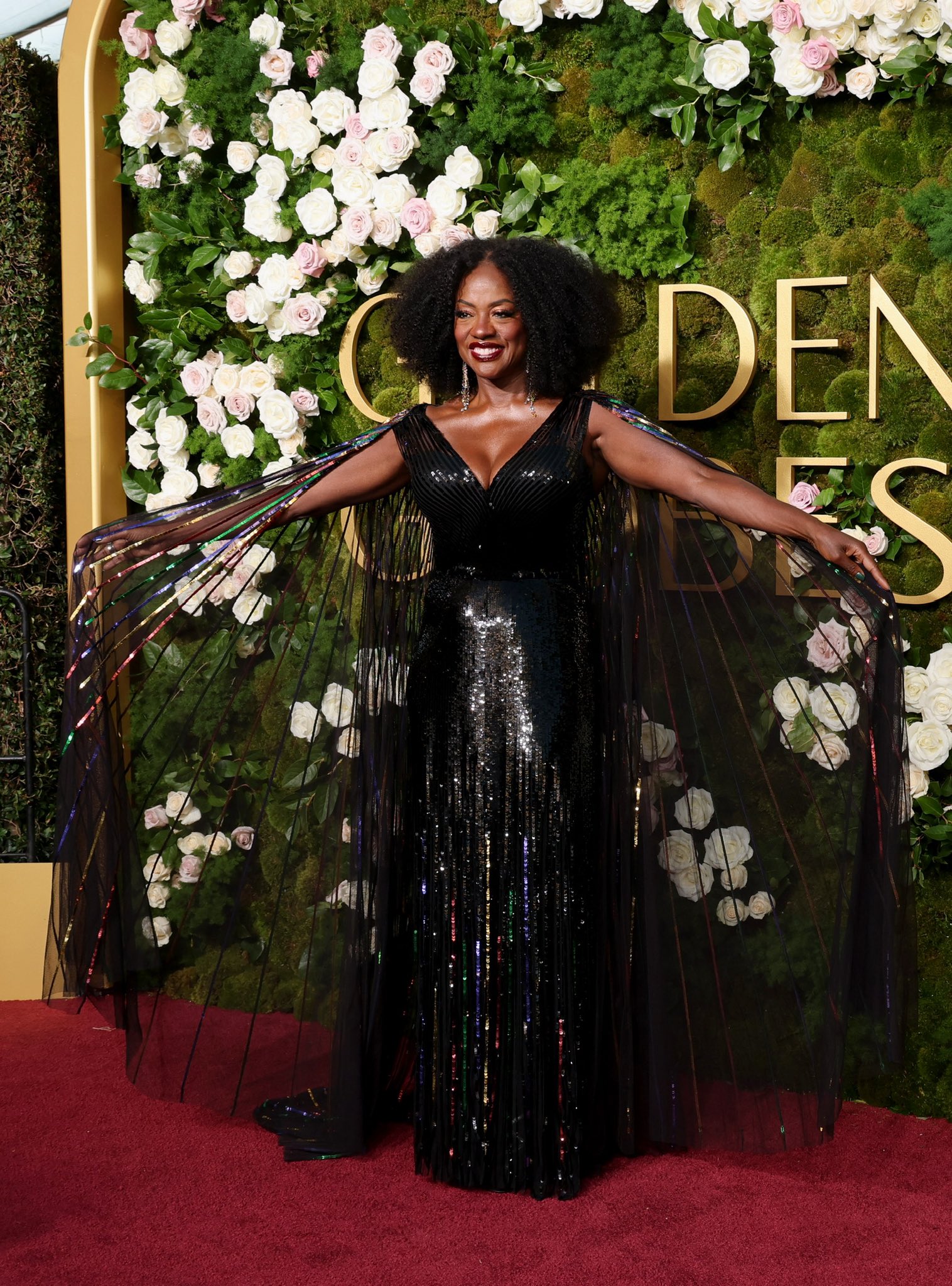
Her career, marked by performances of stunning humanity, served as a beacon for what is possible when women are given the tools and trust to lead.
More Than the Winners
Beyond the winners, the night’s nominees reflected a new era of inclusivity and talent. Karla Sofía Gascón made history as the first trans actress nominated in a Golden Globe acting category, recognized for her work in Emilia Pérez, which took home awards for Best Motion Picture – Musical or Comedy and Best Foreign Language Film. The Spanish-language French musical crime comedy, written and directed by Jacques Audiard, is based on Audiard’s opera libretto of the same name, itself loosely adapted from Boris Razon’s 2018 novel Écoute. The film tells the story of a Mexican cartel leader (played by Gascón) who enlists a lawyer (Saldaña) to help her disappear and fulfill her dream of transitioning into a woman.
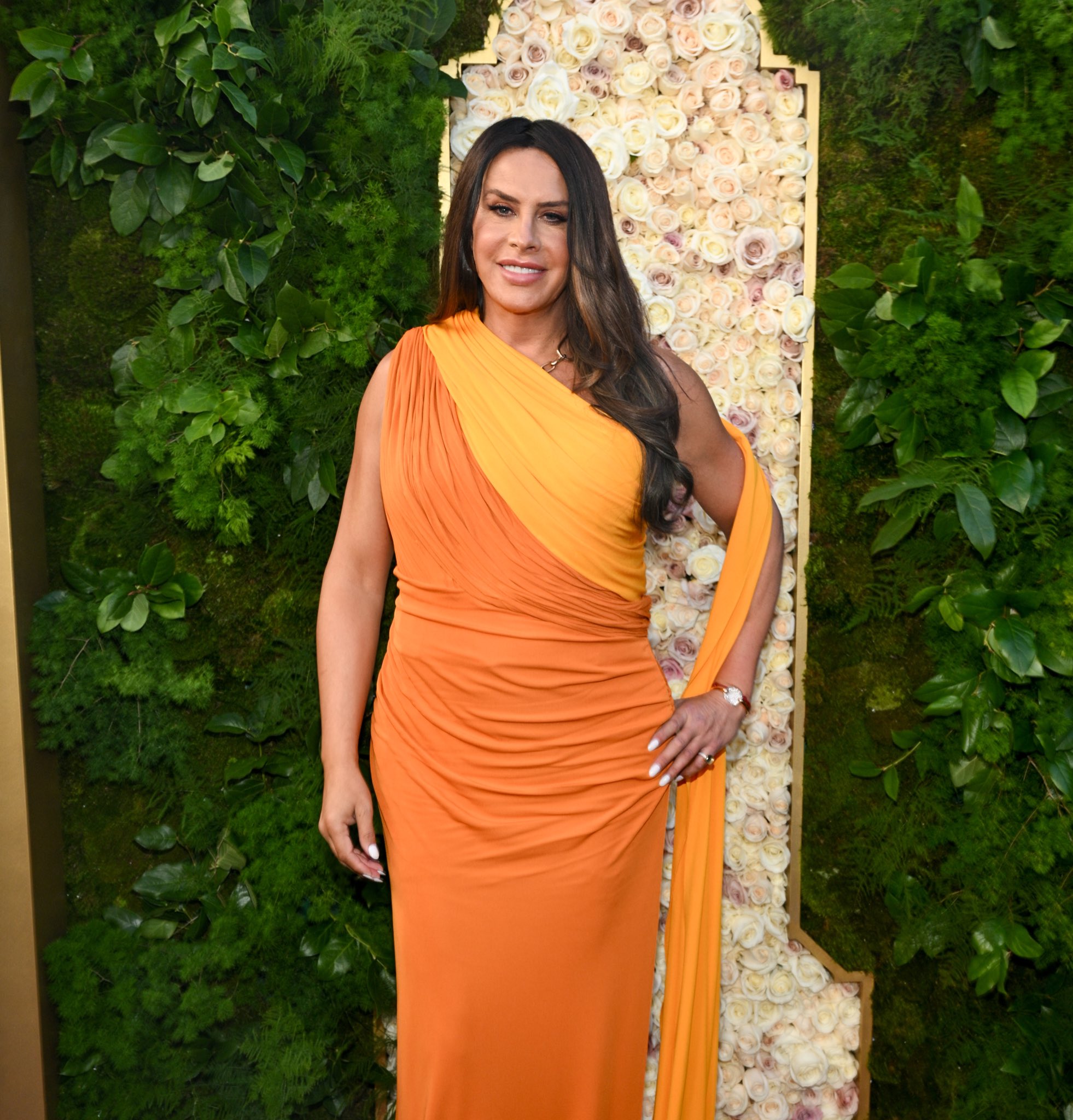
Selena Gomez made an impression as a rare double nominee, recognized for her work in both film and television—Emilia Pérez and Only Murders in the Building, respectively. Her nominations stood as a statement of resilience, beating back the constant hate and online vitriol she endures, and notifying everyone that her talent and impact speak louder than the noise.

Pamela Anderson, long dismissed as a tabloid fixture, earned her first nomination for The Last Showgirl, a revelatory performance that marked her reinvention under Gia Coppola’s direction.
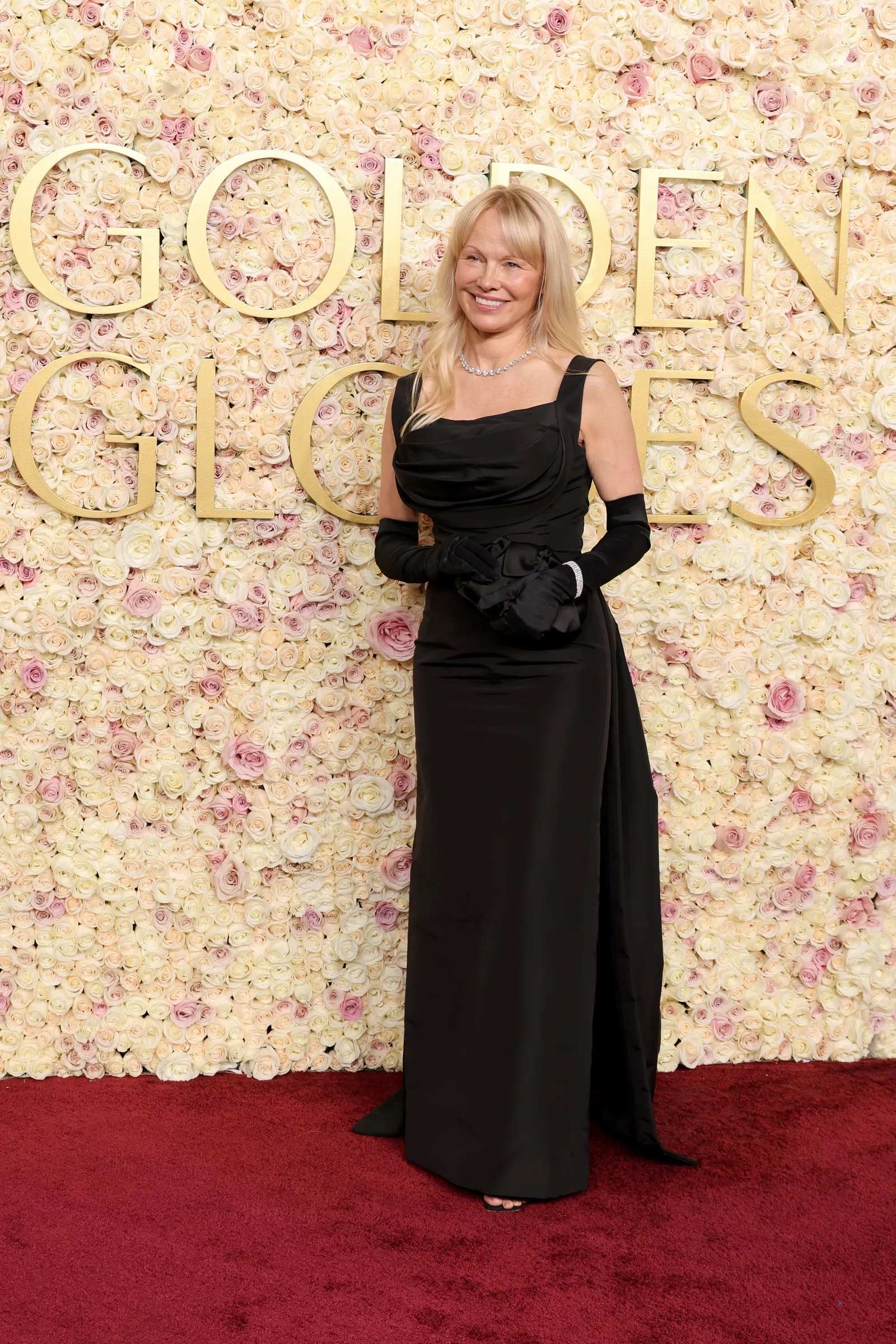
Angelina Jolie’s comeback as Maria Callas in Maria, the third film in Pablo Larraín’s trilogy of significant 20th-century women, earned her widespread acclaim. Following 2016’s Jackie with Natalie Portman and 2021’s Spencer with Kristen Stewart, Maria captures the legendary opera singer’s tumultuous life, with Jolie delivering a performance critics are calling her most compelling in years. To prepare for the role, Jolie dedicated seven months to training in opera singing, a commitment that highlighted her return to form as an actress capable of transformation.
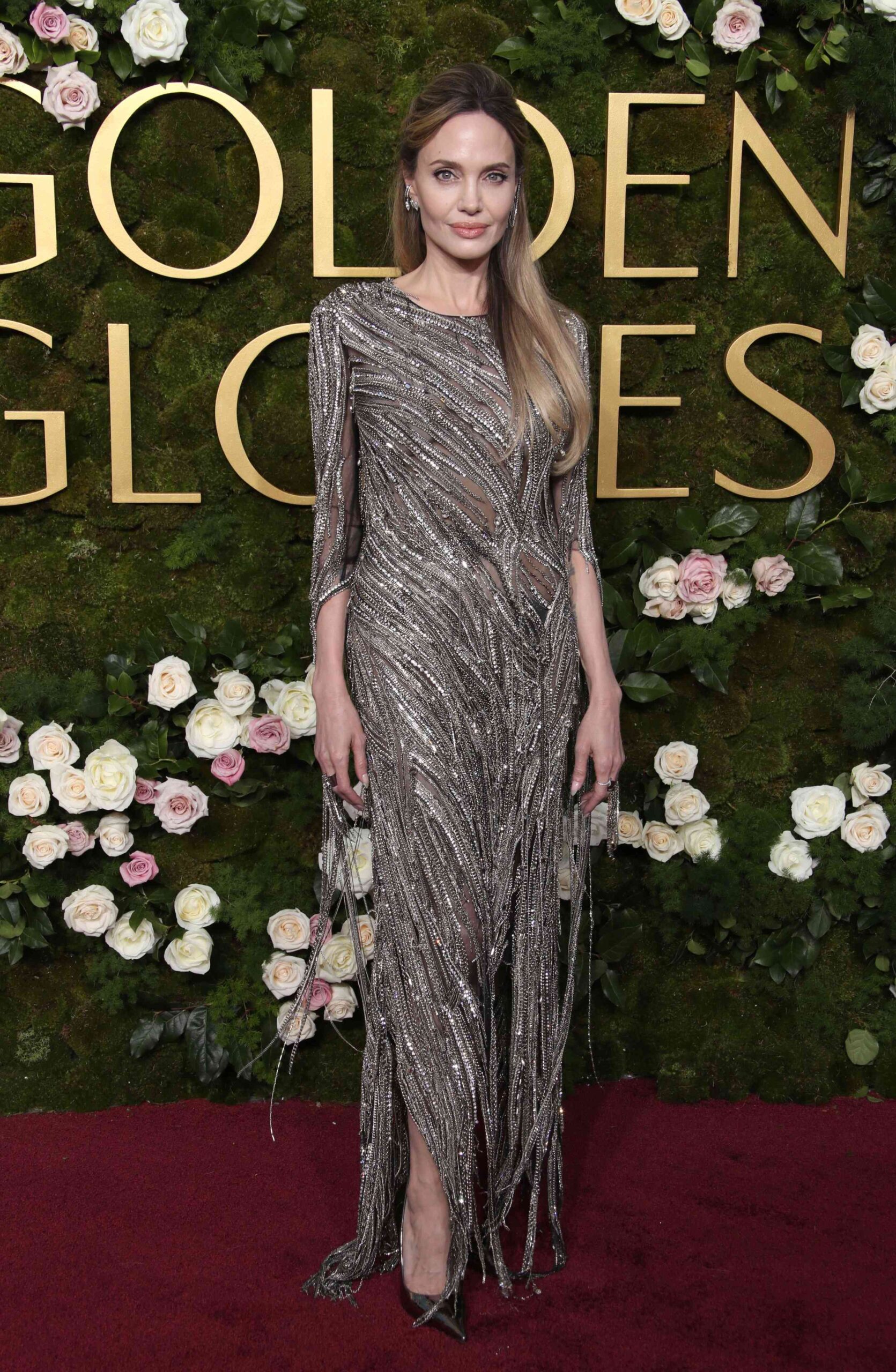
While the wins and nominations were cause for celebration, they also underscored how much work remains. Women may dominate the box office as an audience, but their stories, voices, and leadership are still underrepresented. These performances signaled a shift in the stories being told and the women chosen to tell them. At this year’s Golden Globes, women were heard, seen, and reckoned with.
Photos: GOLDEN GLOBES (via website and Instagram); KARLA WELCH (via Instagram); CRAVE MEDIA and PRADA (via X); and WHAT THE FROCK (via Reddit)
The post Women’s Collective Power Shines at the 82nd Golden Globe Awards appeared first on MEGA.Women’s Collective Power Shines at the 82nd Golden Globe Awards
Source: Insta News Pinoy

0 Comments